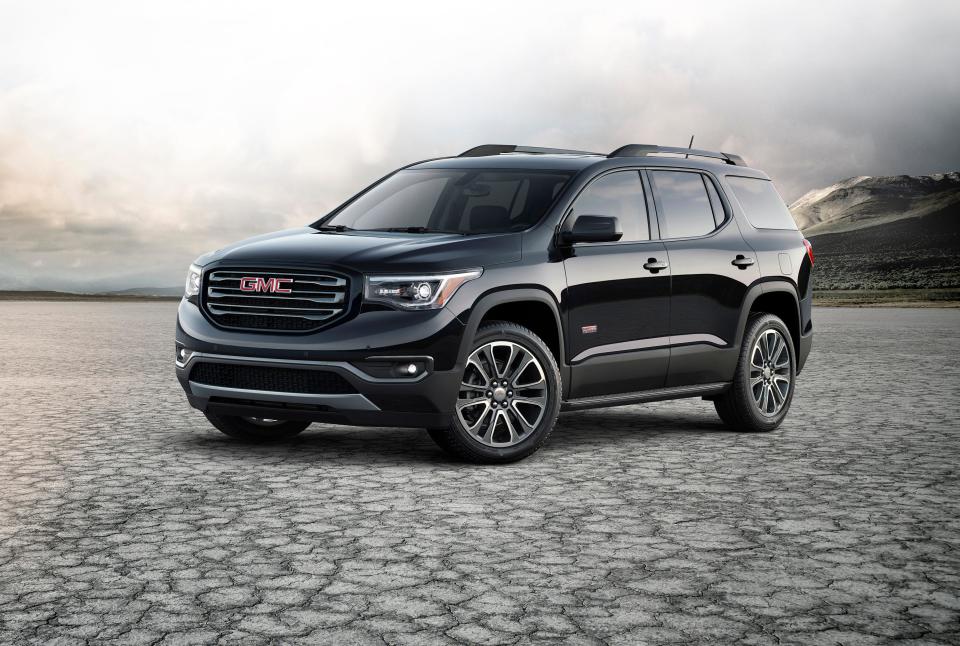Airbag problem could pose 'unreasonable risk,' but Knoxville company rejects a recall
The National Highway Traffic Safety Administration is requesting a recall of millions of airbag inflators made by a Knoxville company after nine reports of injury or death since 2009.
The company, ARC Automotive disagrees that a sweeping recall is needed.
The highway safety agency has been evaluating the inflators since 2015 after two incidents of ruptures. These ruptures can cause metal fragments to shoot into the driver and passenger areas, the agency said.
The investigation was upgraded in 2016 after a fatal crash in Canada.
A recall could affect 67 million inflators used in U.S. vehicles assembled by at least 12 vehicle manufacturers, according to the National Highway Traffic Safety Administration.
General Motors isn't waiting for a ruling. It is now recalling nearly 1 million vehicles with ARC inflators.
Which GM vehicles are being recalled due to airbag inflators?
Owners of certain GM vehicles will be notified by letter starting June 25, but no fix is available yet. In the meantime, here's how the recall breaks down:
2014-2017 Buick Enclave – 244,304 SUVs
2014-2017 Chevrolet Traverse – 457,316 SUVs
2014-2017 GMC Acadia – 293,143 SUVs
Chrysler, Hyundai, Kia and Volkswagen are among the manufacturers that also have used ARC inflators.
600 miles on a single charge? How Tennessee could shape the future of electric vehicles
About Knoxville-based ARC Automotive Inc.
ARC Automotive was formed in 1949 as Atlantic Research Corporation. Over the past 74 years, the company has added operations in Kentucky and Michigan, as well as China, Japan, Mexico, North Macedonia, South Korea and Switzerland.
ARC uses hybrid inflator technology to inflate airbags. This technology uses compressed gas "augmented by limited amounts of pyrotechnic material," according to ARC's website.
ARC's Knoxville operations include manufacturing, marketing, research and engineering. Its headquarters is located at 1729 Midpark Road.
The company told Knox News' Knoxville Book of Lists in 2021 that it employed about 90 people locally, and the company's production facilities around the world employ more than 3,000 people.
What's causing airbag inflator ruptures?
In a recall request letter to ARC Automotive, the National Highway Traffic Safety Administration outlines how ruptures can happen.
During manufacturing, the friction welding process can create "weld slag" or "weld flash." If weld slag is loose, it can follow the airflow when an airbag is deployed.
Debris can block the area where gas exits the inflator to fill the airbag. If blocked, overpressurization can happen and cause a rupture. This is how metal fragments can be propelled into the passenger area, according to the highway safety agency.
How has ARC Automotive Inc. responded?
ARC Automotive shared the following statement with Knox News: “We disagree with NHTSA’s new sweeping request when extensive field testing has found no inherent defect.”
Steve Gold, ARC's vice president of product integrity, responded to the recall request on May 11. His view: NHTSA's position is not based on any objective technical or engineering conclusion about a defect, “but rather conclusory statements regarding hypothesized blockage of the inflator orifice from ‘weld slag.’”
The next step in the process is for NHTSA to schedule a public hearing. The agency could then take the company to court to force a recall.
Airbag inflator incidents and safety testing
At least two people have been killed in the U.S. and Canada, and seven others have been hurt as a result of defective ARC inflators, according to the NHTSA.

One of the two deaths was a mother of 10 who was killed in what appeared to be an otherwise minor crash in Michigan’s Upper Peninsula in the summer of 2021. Police reports show that a metal inflator fragment hit her neck in a crash involving a 2015 Chevrolet Traverse SUV.
A "collaboration team" was formed in May 2017 between ARC, the National Highway Traffic Safety Administration, vehicle manufacturers, suppliers and a third-party friction welding consultant.
Under the direction of this team, ARC tested the possibility that welding debris causing a rupture. The studies "were unable to replicate abnormal weld flash sufficient to cause blockage that would result in an inflator rupture," Gold wrote in response to the highway safety agency.
"Moreover, there have been several testing programs that deployed inflators collected from the field, but not a single rupture occurred during these tests," he said.
USA TODAY reporter Mike Snider contributed to this report.
Ryan Wilusz is a downtown growth and development reporter. Phone 865-317-5138. Email ryan.wilusz@knoxnews.com. Instagram @knoxscruff.
Support strong local journalism by subscribing at knoxnews.com/subscribe.
This article originally appeared on Knoxville News Sentinel: NHTSA urges recall of airbag inflators by Knoxville's ARC Automotive

